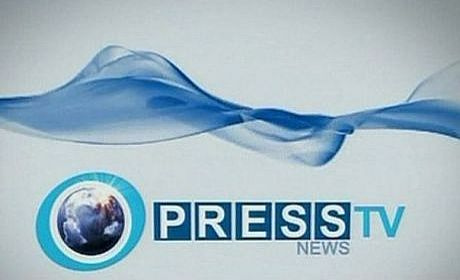The Goal Is to Exert Pressure on Iran

Is the cutting off of Iran's television networks from the Hotbird satellite against international laws? What is your assessment of this measure?
This issue, more than being a legal issue, is a political matter; hence, it cannot be pursued. Foreign countries intend to exert pressure on Iran in any way possible and this measure is also taken in the same path.
Of course, this is not the first time that such an action has been seen and it has previously been done. For example, the activities of Press TV in London were banned before, a ban which was removed following Iran's complaints and due to various other reasons. Another example is France, which claims to be democratic, but which stopped the broadcast of Al-Minar in the country.
Therefore, this approach is more of a political one, even though Iran can follow this mater legally as well. However, it seems impossible to be able to succeed and this can only create tumult from political and propaganda aspects.
Is there a legal vacuum in international regulations and laws with regard to freedom of expression and media? Is this measure against international regulations?
A legal vacuum does exist. Of course, there have been certain UNESCO ratifications. It means that UNESCO has issued declarations and resolutions based on this issue which state that those media which intend to have live broadcasts through satellites must make sure that these programs are not racist and do not propagate war, rather promoting peace and not damaging the national integrity of countries.
Since the countries which are members of UNESCO have accepted these resolutions, they must be respected; but they are not binding and they are viewed as recommendations; at the same time, these resolutions can be interpreted differently.
For example, it has been ratified at UNESCO that no country has the right, through satellite radio and television networks, to intervene in other countries' rulership and to instigate people to war or civil rebellion; this is while we see that when something happens in Iran, many of the foreign-based Persian-speaking networks incite supporters or opponents in their programs and give them directions which are banned by UNESCO; but they are not binding to be able to be legally approached.
Does this measure mean that Iran's satellite networks have impacted the public opinion of the targeted countries, and they therefore intend to prevent this effect through this measure? Or it is done in line with the sanctions and the limitation and isolation of Iran?
First of all, the satellite networks broadcast from Iran are Press TV, Al-Aalam and Jame Jam. The Jame Jam network broadcasts its programs for Iranians and Persian-speaking people who live outside of Iran and it does not have an international dimension. Although it carries the word "international", its viewers are limited and the network only covers Iranians who live abroad.
But Press TV, due to its English language programming, can, to some extent, cover the opposition of the targeted countries; but there are so many other networks, so I don't think this network has permanent viewers who could be affected. This is while today’s media is not limited to radio and television and there are internet and social networks like Facebook, through which people can exchange their ideas.
Therefore, in my opinion, this measure, more than being concerned about the impacts of Iranian networks, has been taken to pressure Iran. In fact, they intend to exert political pressure on Iran to show that, if Iran continues its policies, it will be limited and put under pressure from all sides.
On the other hand, it must be said that today’s communications are not one-sided and viewers are not passive and do not accept to watch just any program or to read just any article; they would rather check them through other sources for verification. We are not in the 1930s anymore, where injected ideas ruled, the media was able to have one-sided influence, and the viewers were passive and indecisive. Therefore, the era of viewer passivity is finished.
What legal, political, and ... measures can Iran take against this action?
Whatever Iran does, they will possibly retaliate. Since Iran does not have any satellites to broadcast its programs, its hands are tied. If Iran decides to take some measures, it has to act cautiously, that is to say, it should not take certain actions so that other countries could retaliate.
For example, Iran can limit the activities of foreign reporters who are present in Iran and, for instance, not renew their visas or journalist cards or not issue visas for reporters who intend to come to Iran. But, it cannot do that too severely, because other countries might also retaliate.
Of course, since Iran does not have many reporters outside of the country except in the US and some specific countries, some problems might be created for them. But, since they are usually citizens of these countries, not many problems will be created for them. Nevertheless, Iran must act cautiously.
But, with regard to the main issue, although Iran can file a complaint regarding this matter, it can only make progress from the publicity aspect. For example, the International Telecommunication Union is one of the organizations which can investigate this issue (allocating satellite and radio and TV waves) and Iran can take its complaint to them. Therefore, Iran can protest in international circles; but, this protest will have only have publicity value and will not gain anything.

